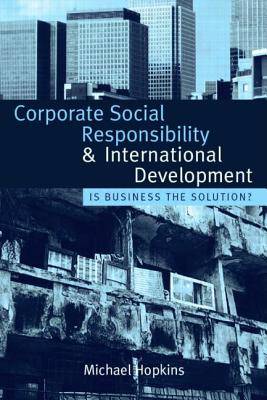
- Afhalen na 1 uur in een winkel met voorraad
- In januari gratis thuislevering in België
- Ruim aanbod met 7 miljoen producten
- Afhalen na 1 uur in een winkel met voorraad
- In januari gratis thuislevering in België
- Ruim aanbod met 7 miljoen producten
Corporate Social Responsibility and International Development
Is Business the Solution?
Michael HopkinsOmschrijving
The business of business is business. So why should corporations be involved in development? This groundbreaking new book makes the case that governments and their international agencies, grouped under the umbrella of the United Nations, have failed in their attempts to rid the planet of underdevelopment and poverty. If development is the objective then it seems that the solution and the responsibility lies with the private sector - particularly through the Corporate Social Responsibility (CSR) programmes of large corporations, with their tremendous power and economic strength.
Written by noted CSR practitioner Michael Hopkins, this book is the first to explicitly link CSR with development. It spells out what corporations are doing on development, what more they could do and how CSR can be a useful tool to promote economic development via corporations. This is important and challenging reading for all of those in government, business and NGOs who think that there must be a better, more effective and dynamic way to kick-start development and eradicate poverty.
Specificaties
Betrokkenen
- Auteur(s):
- Uitgeverij:
Inhoud
- Aantal bladzijden:
- 262
- Taal:
- Engels
Eigenschappen
- Productcode (EAN):
- 9781844073566
- Verschijningsdatum:
- 1/11/2006
- Uitvoering:
- Hardcover
- Formaat:
- Ongenaaid / garenloos gebonden
- Afmetingen:
- 162 mm x 242 mm
- Gewicht:
- 548 g

Alleen bij Standaard Boekhandel
Beoordelingen
We publiceren alleen reviews die voldoen aan de voorwaarden voor reviews. Bekijk onze voorwaarden voor reviews.









